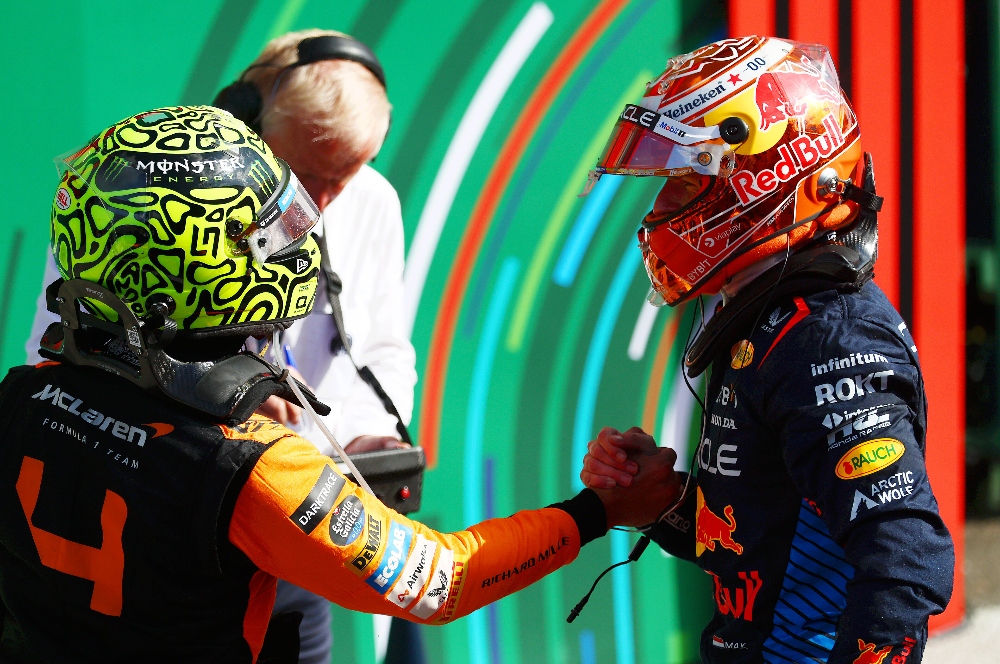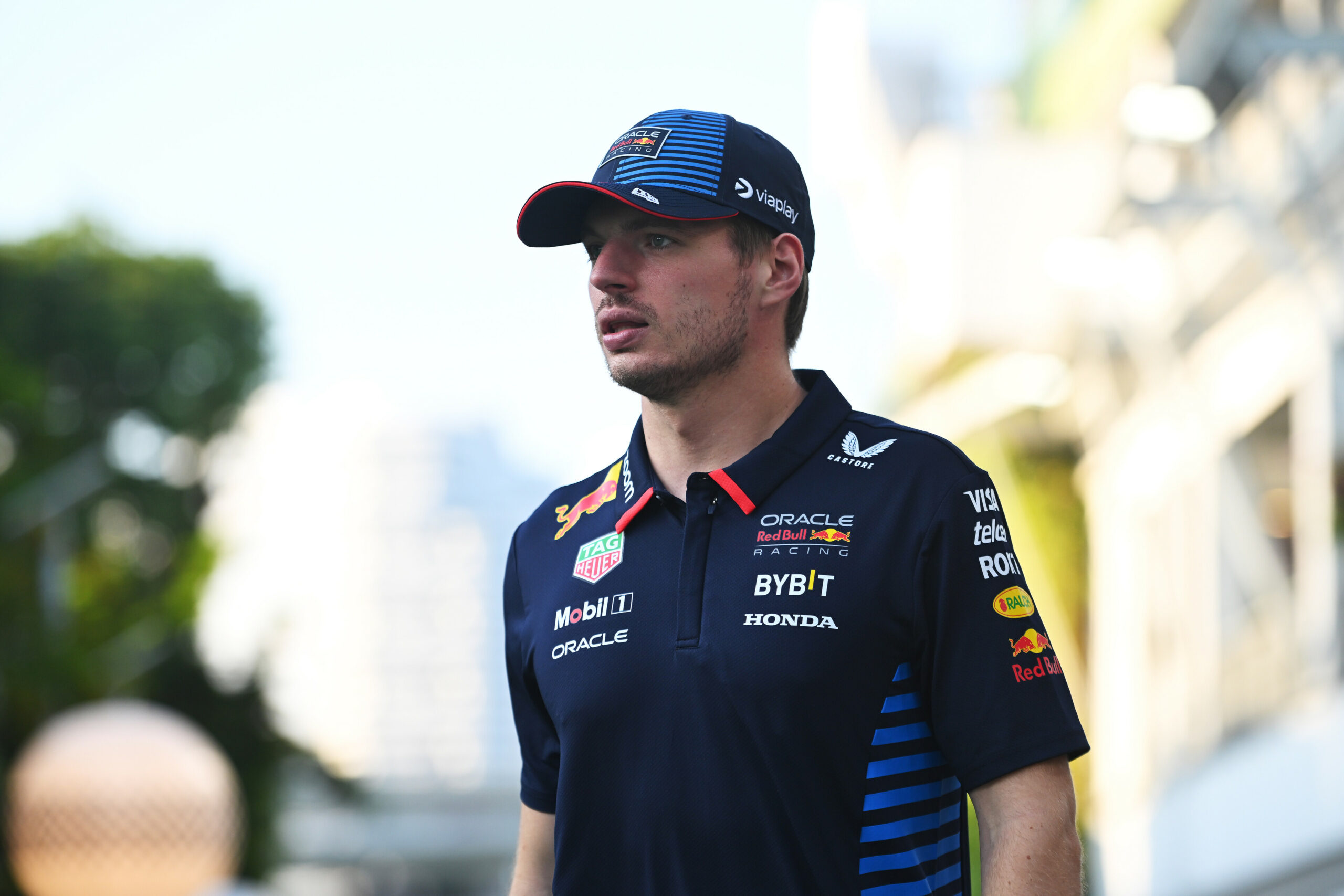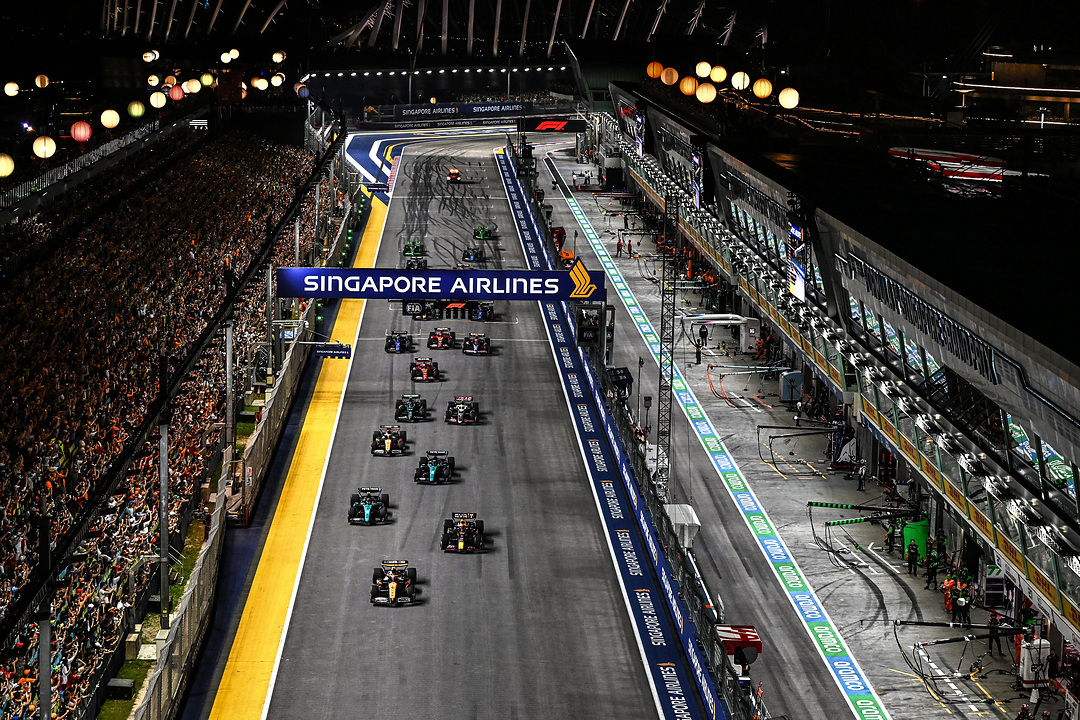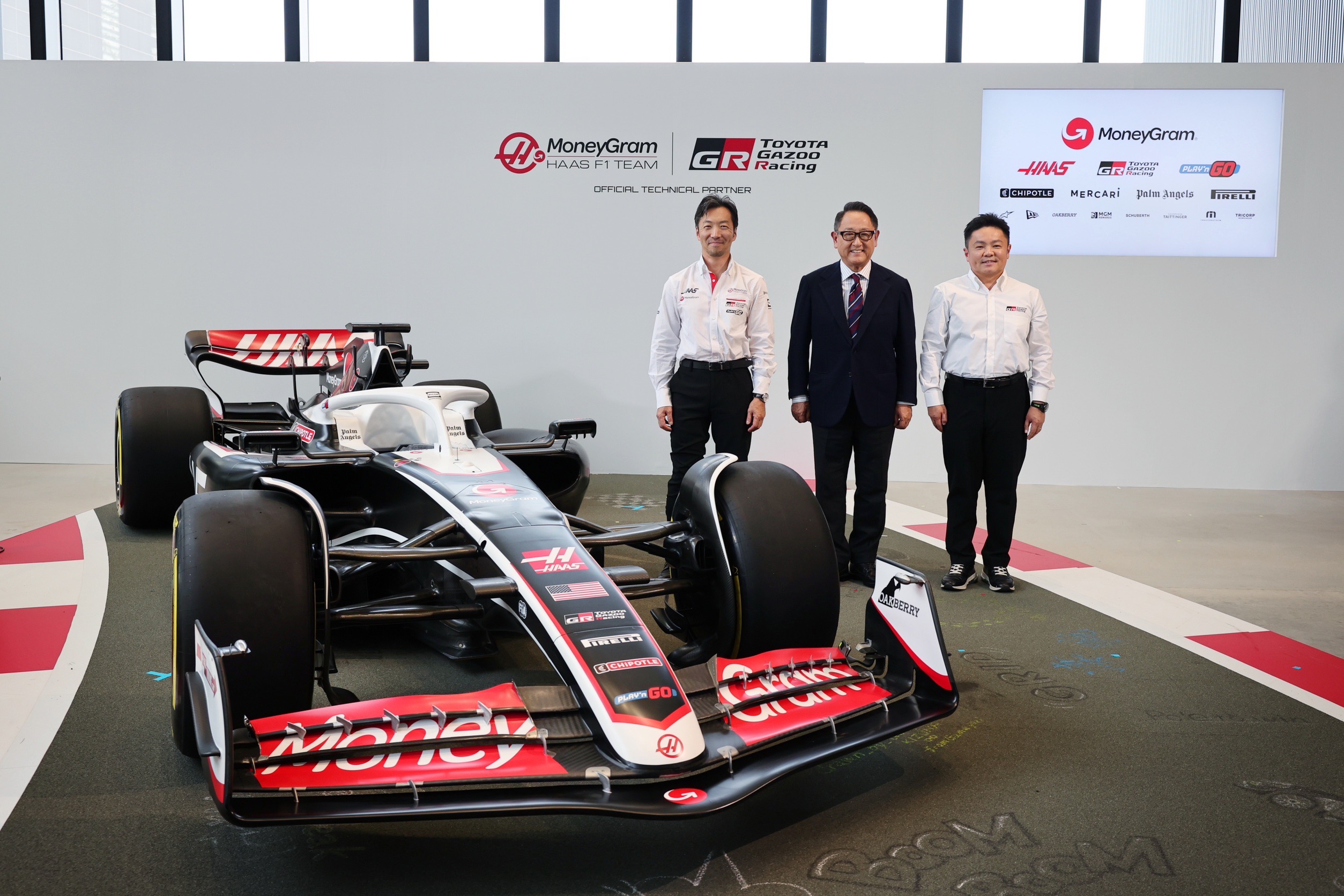At the beginning of the season, many believed that Red Bull Racing’s Max Verstappen would surely win his fourth World Driver’s Championship, and after five wins and one second-place finish from the season’s first seven races, it seemed as if he was on a clear course to dominate the season just as he had in 2023. However, the tides have turned since those early races, and now, it is no longer Verstappen who goes into the race weekend as the clear favourite for victory.
Instead, it is McLaren’s Lando Norris, who, despite coming into the 2024 Formula 1 season as an underdog now sits second in the World Driver’s Championship standings, just 52 points behind the championship leader Verstappen. With Verstappen struggling to extract performance from his RB20, and with Norris rapidly improving in his MCL38, arguably the strongest car on the grid, there is now the question of whether it will be Verstappen or Norris who claims the 2024 World Drivers’ Championship title.
However, despite Norris’ strong performances and arguably, stronger car, the odds for the 2024 title are in Verstappen’s favour, though there is no doubt that his eventual victory will not be an easy one. There are three main reasons for this: mathematics, McLaren, and luck.
If Norris is to win the 2024 WDC, he must either win one race more and score 52 points more than Verstappen or score 53 points more than Verstappen across the six remaining race weekends. In the first scenario, Norris will need to outscore Verstappen by an average of 8.667 points per race weekend, while in the second, Norris will need to outscore Verstappen by an average of 8.833 points for race weekend. As fractions of a point are rarely awarded in Formula 1, in both cases, Norris will need to outscore Verstappen by an average of nine points per race weekend. If he can do this, he will finish the season exactly two points ahead of Verstappen – a close but not impossible victory, especially since there are three sprint races remaining this season.
However, the question is: Can Norris accomplish this? Well, mathematically, this is possible but unlikely.
With six race weekends left, three of which will include a sprint race, there are a total of 714 points up for grabs. However, the maximum that any one driver can score across the six race weekends is 180 points, and this will require that he win all three sprint and all six feature races with the additional point for fastest lap. Even if Norris is able to achieve this, with his current 52-point deficit to Verstappen, he will only be able to take the title if Verstappen scores 128 points or less. In other words, and as highlighted during the Singapore Grand Prix, Verstappen will still win the championship if he finishes second behind Norris in all remaining sprint and feature races. Furthermore, while Norris has outperformed Verstappen at the last four Grands Prix – Netherlands, Italy, Azerbaijan, and Singapore, he has on average, only score 20 points per race week – only 6.5 points more than Verstappen who, on average, has scored 13.5 points per weekend. If Verstappen and Norris maintain this trend, Norris regardless of his or Verstappen’s placement in the individual races, will be unable to overcome their points difference, and subsequently will not win the 2024 World Driver’s Championship.
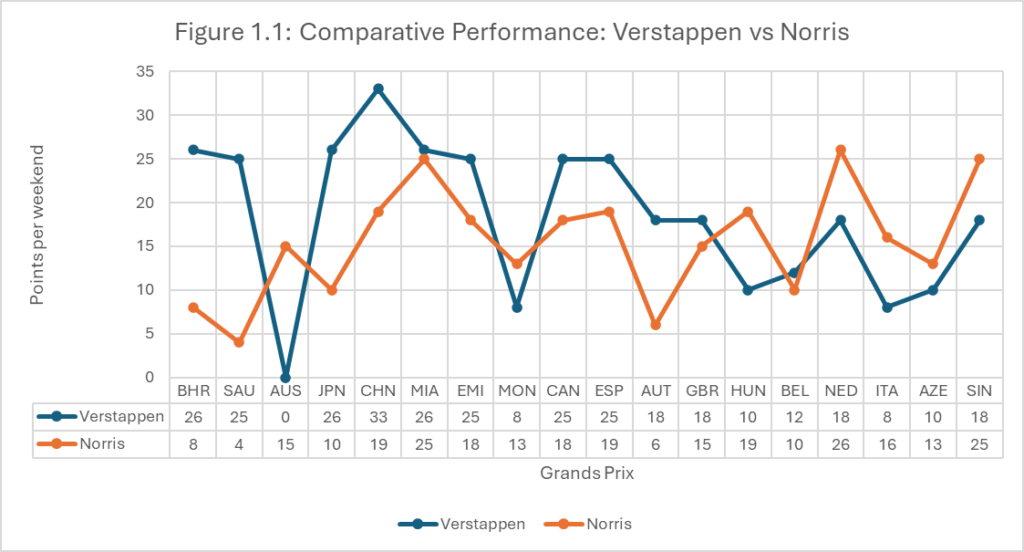
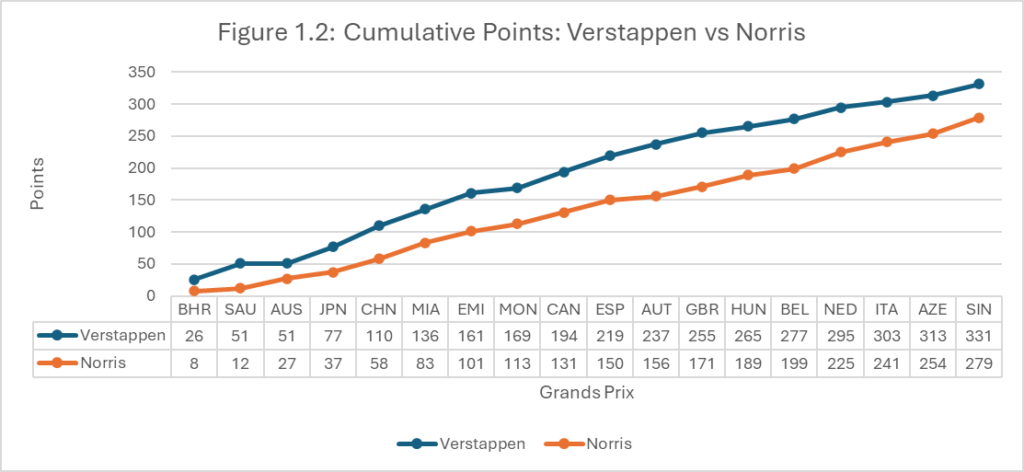
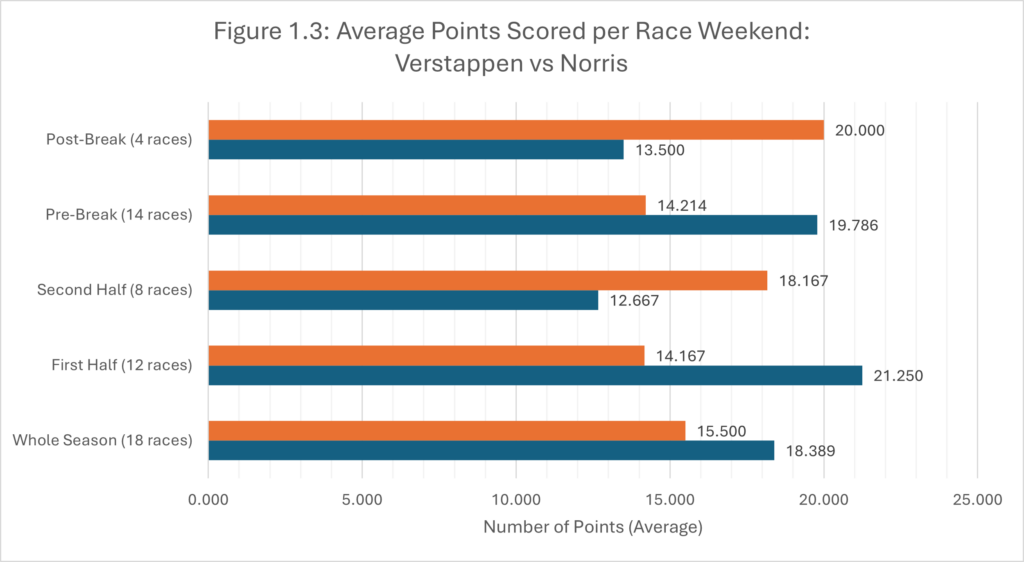

While many permutations indicate that there is still a significant mathematics probability that Norris will win his first championship title– something which should be seriously acknowledged by the likes of Max Verstappen and Red Bull, there are many more permutations which see instead see Verstappen holding on the victory instead. After all, it is unreasonable at best to ignore the influence that Ferrari and Mercedes can have on the championship fight, and with both drivers from each team still mathematically in contention for the title, it is in neither team’s best interest to sacrifice their own performances to aid the championship fight of either Verstappen or Norris.
One driver who can be considered a notable threat to both Verstappen’s and Norris’ title fight is Scuderia Ferrari’s Charles Leclerc. Leclerc, who sits third in the championship standings with 245 points – 86 points behind Verstappen and 34 points behind Norris – is, at best, an outside contender for the title, as he will need to outperform Verstappen by an average of 14.5 points per race weekend to earn the title. However, Leclerc cannot and should not yet be ruled out of the fight for second place, as he can overtake Norris for second place if he is able to outperform him by an average of 5.5 points per weekend.
While it is unlikely that Leclerc will be able to make up the 33 additional points required for him to secure second place in the championship, especially given the comparatively better performance of the MCL38 compared to the SF-24, mathematically, it is more probable that Leclerc will overtake Norris in the standings than that Norris will overtake Verstappen. On top of this, as neither Leclerc nor his team is expected to have any invested interest in the performance of either Verstappen or Norris, it is highly unlikely that Leclerc will work to deliberately assist or hinder the title fight of either driver, especially if such actions require any sacrifice of performance or outcome on either Leclerc or Ferrari’s part.
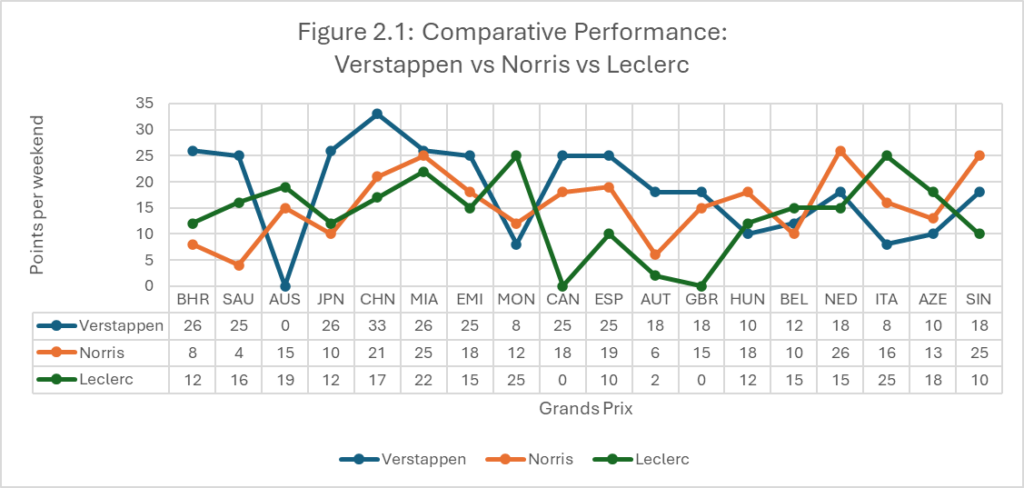
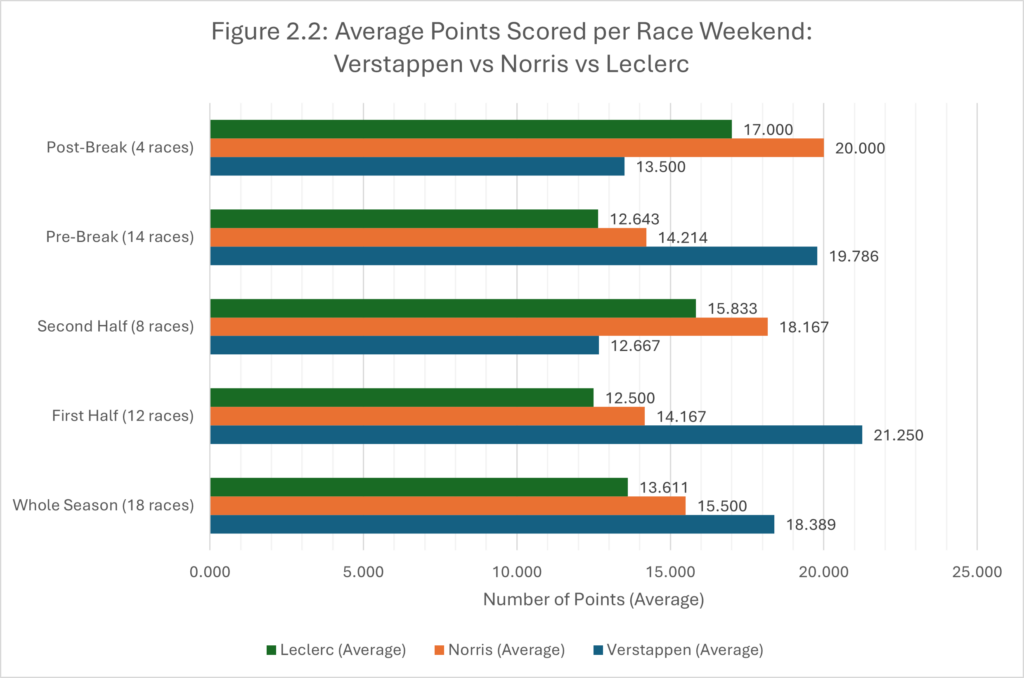

The same, however, cannot be said for Oscar Piastri – Norris’ teammate who, with 237 points, still also remains a significant, albeit outside, contender for the title. If Piastri is to take the title, he will need to score 95 points more than Verstappen, which, on average, would require that he outperform Verstappen by an average of 15.833 points per race weekend. Despite Piastri having shown very strong potential throughout the season and especially since his return after the summer break, outscoring both Verstappen and Norris in two of the most recent four races (Italy and Azerbaijan) and maintaining the second-highest average number of points scored per weekend (17.5 points), it is unlikely that he will be able to make up this deficit.
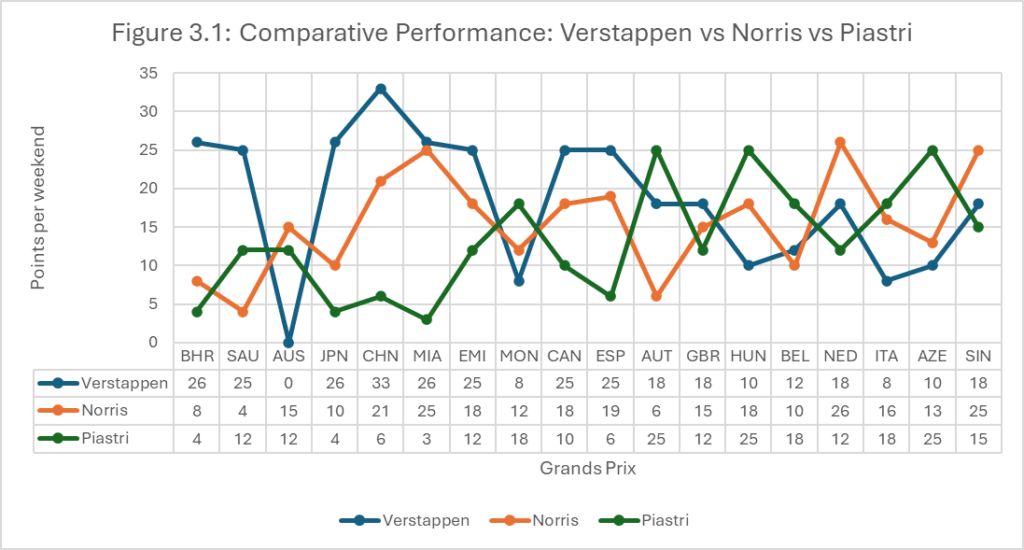
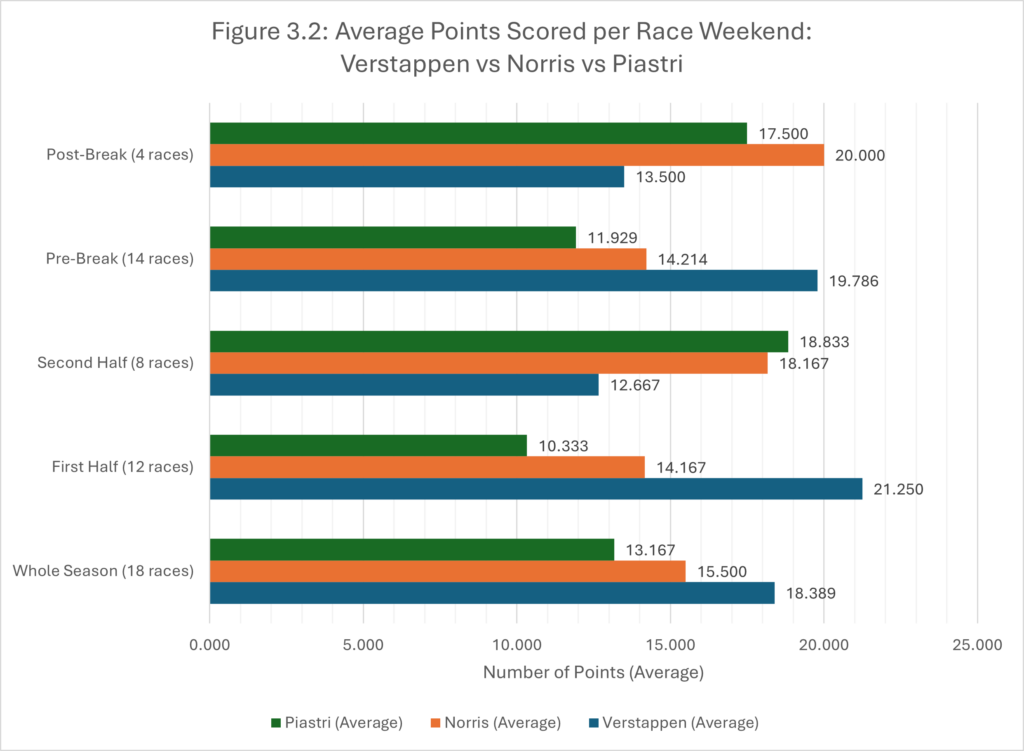

While it is unlikely that Piastri himself, like Leclerc, will become as serious of a contender for the title as his teammate, his continued, strong performances can affect the title fight between Verstappen and Norris, especially if he is able to take places off Verstappen, thereby increasing the average points difference per race weekend between Verstappen and Norris to above 8.833 or 9 points per race.
Consider, for example, the scenario where Norris wins all three sprint races and all six feature races with the extra point for fastest lap. If Piastri is able to finish ahead of Verstappen, he will guarantee his teammate the title. There are, of course, many other permutations in which Piastri will help his teammate win the WDC. However, this will likely require the consistent implementation of team orders at McLaren, and it is McLaren’s shaky stance on the implementation of these team orders that are more likely to hinder Norris’ chances for the title than Piastri’s own ambitions.
As reported by Pit Debrief, while McLaren team principal has addressed concerns over his team’s use of team orders and indicated that, going forward, McLaren would be prioritising Norris over Piastri in an effort to improve the former’s title chances, he added that the team would not be “systematically” adjusting the races in Norris’ favour, highlighting the team’s commitment to fair sportsmanship and Norris’ own desire to win according to own merit.
While McLaren’s supposed commitment to fair sportsmanship between their drivers, and Norris’ determination to achieve the success that he deserves according to his own merit is admirable, in reality, this works against Norris, especially in situations where Piastri may be required to sacrifice places in a race to maximise the points difference between Norris and Verstappen.
And example of this, may be in an event where, in the final laps of the race, Piastri is in the lead with Norris second and Verstappen third. If the race were end like this, Piastri would score 25 points, Norris 18 points and Verstappen 15 points. This three-point, or four-point if Norris takes the additional point for fastest lap, difference between Verstappen and Norris will work against Norris’ title chances, especially if this is a repeated event. However, if Piastri, in this situation, were to sacrifice his first place for second, he would allow for a ten-point difference between Verstappen and Norris, thereby aiding Norris’ championship fight. This is, of course, unfair for Piastri, regardless of the scenario in which it occurs (though an argument can be made if there is a repeat of Hungary-style events). However, this may be what is necessary for McLaren to maximise Norris’ potential for the championship title. The question, therefore, is whether McLaren will make such decisions should such or a similar event occur?
With six race weekends left this season, the answer remains unknown, as neither Norris nor Piastri has any significant impact on each other’s races in either Azerbaijan or Singapore. Ultimately, Verstappen will hope that McLaren’s reluctance to implement team orders, and especially to compromise the team’s value of “sportsmanship”, will continue, as this will work in his favour. After all, every point that Piastri takes off Norris works in Verstappen’s favour, regardless of its effect on the points gap between Verstappen and Piastri.
Of course, as a veteran of F1, and especially after his own controversial win against seven-time world champion Lewis Hamilton, Verstappen, perhaps more than anyone else, will be well aware that it is neither mathematics nor team strategy that is the most significant determinant of success in Formula 1, despite the strong role that both play. Instead, it is luck, something which can neither be predicted nor controlled. After all, there are simply too many variables at play and too many forces affecting each of these variables of it to not be as much of a significant contributor as it is.
If Norris is to win the 2024 championship, he will need luck to be on his side. After all, mathematics has already proven that, despite his recent struggles, and the very many deficiencies of the RB20, the odds are in Verstappen’s favour. Verstappen, due to, at least in part, his exceptional performances during the first half of the season, and the large points difference that he built up for himself as a result of these, has put himself in a situation where he does not need to outperform Norris, though there is no doubt, especially given his notoriously competitive spirit, that he will attempt to do so. Instead, Verstappen simply has to hope that Norris is unable to meet, at least once, the very many requirements for his championship win.
While luck will play a role in Verstappen’s own championship fight, he needs it less to be on his side than he needs for it to not be on Norris’, especially if Red Bull has not significantly improved the RB20’s performance in the weeks since his second-place finish, behind Norris, in Singapore.
Ultimately, if Norris is to win the 2024 World Drivers’ Championship, he will need the starts to align in his favour, regardless of his own skills and the strengths of his car. For Verstappen, on the other hand, all he needs is for at least one of Norris’ stars to fall even slightly out of alignment for even a moment.

